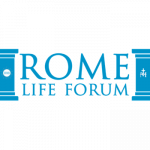Pater Noster…
When teaching his disciples how to pray, Jesus began with ‘Our Father’. He addressed God as ‘Abba’, and taught us to do the same. This was a term equivalent to ‘Daddy’, or the address of a small child. All of this would have been considered blasphemous by Jewish leaders who did not write the full name of God, let alone speak it. Descriptive phrases like The Almighty, The Lord or The Most High may have been acceptable but those terms only spoke of what God is and not who God is. Thanks to the revelation of Jesus Christ, mankind now knows who God is – Our Father.
It is interesting to note that the followers of Islam, the other great monotheistic religion, are also offended by Christians calling God, ‘Father’. Some years ago, the well known scripture scholar, Scott Hahn, was scheduled to publicly debate an Islamic scholar. In a pre-debate meeting, the Islamic cleric expressed his outrage that Christians dare call God ‘Father’. He threatened to call the debate off unless Hahn agreed not to commit that blasphemy during the course of the debate. Hahn indicated that it would impossible for a Christian to talk about God without reference to His paternity. The debate never took place.
We might reflect with some awe that in the Holy Mass, immediately preceding the Lord’s Prayer, we basically state that we would not have the courage to address God in this manner if not for the directive of Christ.
The Crisis of Paternity
During fourteen years of marriage and with seven children, I have had much impetus for the contemplation of the meaning of paternity and its decay in the culture of modern man. With the intrinsic paternity of God as a backdrop, I would like to share a few thoughts, that create a foundation, on which to build an understanding of the crisis of paternity in the Church and in the world at large.
The words of the then Cardinal Ratzinger (now Benedict XVI) have driven and illumined my search for meaning when he remarked that “the crisis of fatherhood we are living today is perhaps the most important element threatening humanity.”
On the superficial level, many people may understand this crisis purely in the context of broken marriages and, more specifically, in the absence of fathers in the upbringing of children. I’ve little doubt that psychologists and sociologists will be examining the deficits of fatherless children for a long time to come. However, fatherless children are only symptomatic and, as with all epidemics, it is imperative to seek the root causes of the crisis.
The Nature of Man & Woman
The most obvious place to begin looking for a cause is the so called women’s liberation movement, which brought about a redefinition of gender roles. But an examination of gender roles still fails to reach the root of the issue. No human person is defined purely by the role that they perform. To reach the root, we must ask: what is the intrinsic nature of man and woman?
Feminism hasn’t merely redefined the roles of men and women; it seeks to redefine their very nature.
If God was revealed by Jesus as intrinsically a father, surely this reality must hold a key to understanding the nature of our own particular gender.
Maternity
I would find it almost impossible to talk about the meaning of paternity without some treatment of its compliment – maternity.
The eminent philosopher, Dr. Alice Von Hildebrand, is fond of saying that every woman, no matter what her vocation in life, is intrinsically a mother. Therefore, womanhood and maternity are inseparable. To understand the meaning of this proposition, one must not think of maternity only within the confines of biology. Even if a woman does not physically bear a child, she is created and called to be a spiritual mother – to give birth to the world spiritually.
Though God is completely self-sufficient, his ardent desire was to have a mother for himself. Archbishop Fulton Sheen used to say that God and men love first in ideal and then in reality. God’s ideal of woman was Mary. Was her humanity her greatest attribute? No, it was her maternity. The Church recognised this with her first formal title – the Theotokos (Mother of God) as defined at the council of Ephesus in 431 AD. God loved Mary first in ideal out of all eternity and in his benevolence, He was to share his most beloved with sinful mankind.
The Domestic Church
At Vatican II in the Dogmatic Constitution on the Church, Lumen Gentium, Paul VI affirmed a teaching from the earliest centuries of the Church. The joining of one man and one woman in the marriage covenant creates the Church in miniature – the Ecclesia Domestica or Domestic Church.
This specific description of the Christian family was also used many times in John Paul II’s apostolic exhortation Familiaris Consortio on the role of the Christian family in the modern world. He said that, “We must examine the many profound bonds linking the Church and the Christian family.” He also said that as a matter of urgency, “Every effort should be made to strengthen and develop pastoral care for the family, which should be treated as a real matter of priority, in the certainty that future evangelization depends largely on the Domestic Church.”
Paternity and the Hierarchy
There are many disturbing trends inside the Church that seek to undermine the very model established by God, which was given birth and made manifest at the great Ecclesial event at Pentecost.
Jesus Christ established a hierarchy that is paternal at every level. However, there are forces at work which not only seek to democratise the Church but to dissolve the paternal character of its governance. This attempted coup runs all the way to the top and, at its extreme, is epitomised by those in some absurd and radical feministic quarters of the Church, who would have the Goddess Sophia topple God the Father from his heavenly throne.
Most of us have heard of gender non-specific Baptisms invalidly done in the name of the Creator the Redeemer and the Sanctifier! Most of us have heard lectors use inclusive language or omit any reference that may support paternity – despite St John’s dire warning at the end of the New Testament. Most of us know how widespread the belief is held that the Church should or (to put a finer point on it) can ordain women! Again, Dr Alice Von Hildebrand likens the push for women’s ordination to a man wanting to give birth and breastfeed! This illustrates why, at the root of the crisis, it should not be the roles of men and women that define their gender but conversely, the very nature of the specific genders that define their roles.
As the father of my little domestic church I sit on the low rung of the hierarchy of paternity that rises up through Deacons, Priests, Bishops, to The Holy Father and up to the throne of God Himself. Yes, all of these fathers have a leadership role and all of these fathers have a teaching role, but the greatest dignity in the vocation of the father is loving service – even unto the laying down of one’s life. Unfortunately, this vocation to sacrificial loving service, after the model of Jesus, is often presented as though it diminishes the importance of the roles of leader and teacher. On the contrary, it is precisely by leading and teaching that all types of fathers most ably love their families. This leadership and teaching is done in a threefold manner and in this order – by prayer, by example and by word. Of course God the Father has imparted another way – by sacrament. This is the direct infusion of grace, as Jesus promised that the Holy Spirit would come to teach us all things.
This paternal/hierarchical model and structure is a remedy directed at the fallen nature of mankind. This remedy and plan for redemption was set in motion immediately after the fall of our first parents in the third chapter of Genesis. It follows that if the family is the fundamental building block or cell of the Church, then to undermine one directly harms the other; which in turn interferes with God’s ultimate plan for our redemption.
The Egalitarian Error
I think all children, at one time or other, have cried out to their parents “…it’s not fair!” I remember my own father retorting “Who told you that life was fair?”
The problem with modern egalitarian thinking is that it doesn’t so much argue that everyone is equal (whether in abilities, opportunity, dignity or whatever) rather; it basically argues that every one should be treated equally. How can this premise uniformly stand when God treats us all so differently and with such different measures of grace.
St. Thomas Aquinas taught a principle that should prevent us from thinking that God is anything but a perfectly just father. That principle is basically this: that God grants every man the grace necessary for his or her salvation. (This teaching is also a firm basis for dispelling errors regarding predestination which are at the core of so much protestant thinking.)
One only has to give the scriptures a cursory glance to see that God deals with mankind in a way that we often regard as, not fair. We see clearly in the parable of the talents that everyone’s measure is not the same. To further confuse our impoverished view of justice, in the parable of the vineyard workers their pays are not measured against the hours of their labour. This does not seem fair to us, but we must accept that God does not think like we do and we must allow God the luxury of partiality. St Paul tells us that man’s wisdom is foolishness to God and man’s strength is weakness.
A perfect God is perfectly just and only His wisdom helps us to see it. God’s justice is belittled if we hold the childish posture that everything must be ‘fair’. There are only glimpses in this life of God’s justice compared with the majesty of His Justice that we will marvel at after death. Sometimes I think that divine justice is better observed in this life if one seeks to understand justice in terms of the balance of things, always remembering that God loves us all individually and only one way – infinitely.
It is an interesting aside that we are only given one word in scripture to sum up all of the exemplary qualities of St Joseph. He was a just man. He is our standard for fatherhood. He was given the job of protecting God’s mother and son and it was a natural progression for him to be given the role of protector of His bride the Church.
The Church is Our Mother
Why is it that sailors invariably refer to their ships in the feminine gender? The image of a ship is also used for the Church but she is more profoundly likened to a bride adorned, with Christ as the groom. How is it that a Church full of sinners can be called the Spotless Bride?
To gain insight into this vital teaching it may help to consider that the greatest and most faithful disciple of Jesus was His own Mother and that the Church loves her children with a love that is wrapped in the mystery of the woman’s heart. It is particularly the woman’s heart that has the ability to love for no reason other than for the beloved’s own sake. We commonly call this, unconditional love. This kind of love is easier to love in return. That is why the hardened criminal can hate his father with bitterness but still have ‘Mum’ tattooed in a heart on his arm. He knows that she still loves him. If love is the greatest of all realities then we must treasure the presence of mother’s hearts wherever they are found – in our daughters, our spouses, our biological mothers, religious sisters, Our Blessed Mother or Our Mother, The Church. Men must realise the power that lies in the heart of a woman. We must protect these hearts – not use and abandon them.
St Paul tells us in Ephesians 5:22-33 that a man who does not cherish his wife is a man who hates his own flesh. Christ loves his bride, The Church, like his own body. Sadly, we see so many men today who use and abandon women and end up in self loathing
The Hearts of Fathers
I believe we live in a time when even the best of our priests and bishops need to be reminded that their vocation is a call to paternity. Archbishop Fulton Sheen used to say that men tend to need a reason to love but love does not reside in the intellect. If men are to have a conversion of heart the beginning point may be the realisation that Love is a decision. Love is in the will and is an act of the will.
In conclusion, I would like to quote a passage of scripture that has been a guiding light for me but also serves as a grim warning:
“And he shall turn the heart of the fathers to the children, and the heart of the children to their fathers: lest I come, and strike the earth with anathema.” Malachias 4:6









